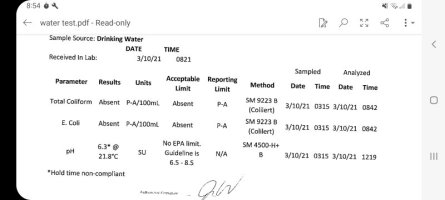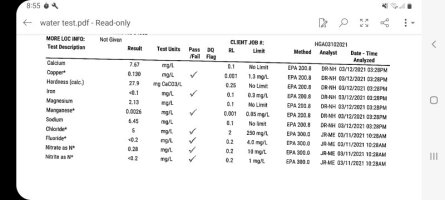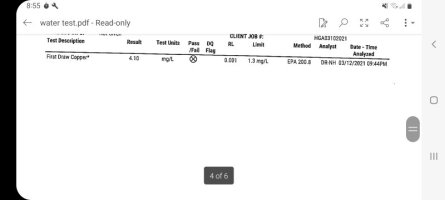I had my well water tested as I was having copper residue in my sinks and shower. The first draw copper test was high. pH was 6.3 and hardness was 1.6 gpg. I decided to install a calcite neutralizer.
I went with a downflow setup: a Fleck 5600sxt, a 10x44 tank, 3M-050p calcite, well pump runs around 40-60 psi. Maximum flow should be around 6-8gpm.
The problem I am having is that we have a lot of hardness in the water. I expected it to increase but it seems like an excessive amount. I tested the pH and got 6.4 from the well and 7.5 from the faucet with the neutralizer at high flow. Before I purchase a water softener I would like to make sure that the calcite neutralizer is working properly. Any help would be appreciated!
I went with a downflow setup: a Fleck 5600sxt, a 10x44 tank, 3M-050p calcite, well pump runs around 40-60 psi. Maximum flow should be around 6-8gpm.
The problem I am having is that we have a lot of hardness in the water. I expected it to increase but it seems like an excessive amount. I tested the pH and got 6.4 from the well and 7.5 from the faucet with the neutralizer at high flow. Before I purchase a water softener I would like to make sure that the calcite neutralizer is working properly. Any help would be appreciated!



